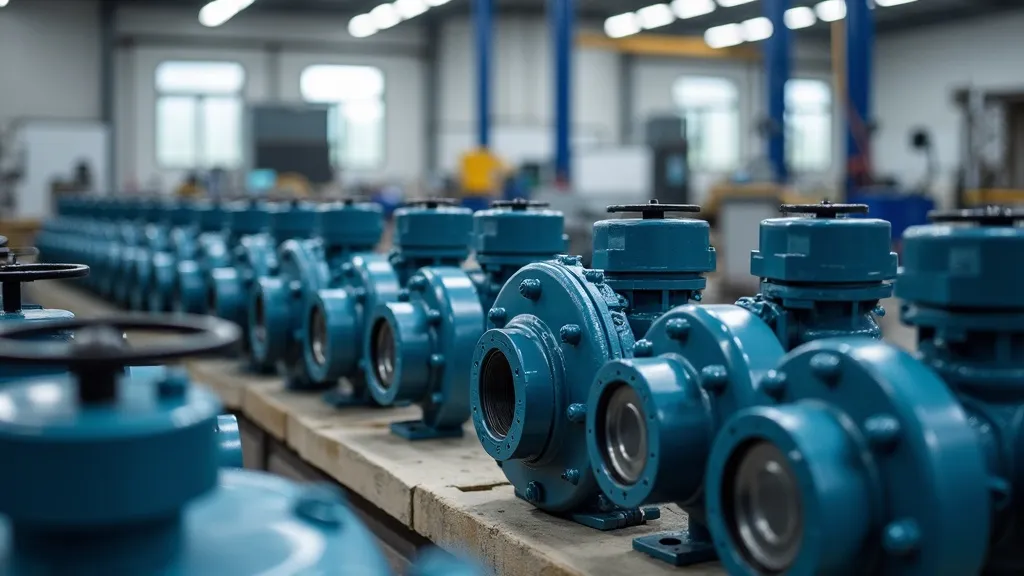Rexroth valves are a cornerstone in industrial hydraulics, renowned for their precision, durability, and efficiency. These components are integral in controlling fluid flow in hydraulic systems, which are widely used across various industries. By exploring their applications, functionality, and benefits, industry professionals can better appreciate their critical role in automation and machinery operations globally.

Rexroth valves serve as vital components in hydraulic systems, offering precise control over fluid flow, pressure, and directional control. These valves are indispensable in numerous industrial applications, including manufacturing, automation, and heavy machinery. Originating from Bosch Rexroth, a leading global supplier of drive and control technologies, these valves exemplify outstanding engineering and reliability. Understanding Rexroth valves begins with recognizing the complexities of hydraulic systems where they operate and the critical functions they serve.
Hydraulic systems, which make use of pressurized fluid to perform work, depend heavily on the functionality of their components. Rexroth valves are designed to facilitate various control mechanisms, making them crucial to the efficient operation of hydraulic machinery. They embody advanced technology, ensuring that the components within a system work harmoniously to generate desired outcomes, such as lifting, moving, and positioning materials and equipment effectively. The precision and reliability of Rexroth valves contribute significantly to enhancing productivity and efficiency across diverse applications, ranging from small-scale machines to large industrial plants.
In industries where precision and reliability are paramount, Rexroth valves play a crucial role. They ensure efficient fluid dynamics by directing the flow, enabling precise movement and control in both simple and complex machinery. Industries such as construction, automotive, and energy heavily rely on these valves for their operations. Additionally, their application extends to agriculture, mining, and marine environments, making them a versatile component in numerous fields.
The ability of Rexroth valves to manage and regulate the flow of hydraulic fluid is fundamental to the successful operation of machinery. In construction, for example, these valves are integral to hydraulic excavators, cranes, and loaders, ensuring that they can operate with the necessary force and accuracy. In the automotive sector, Rexroth valves enable precise control in machinery used for manufacturing vehicles, including robotic arms that assemble parts with pinpoint accuracy.
Furthermore, Rexroth valves excel in energy applications, where hydraulic systems need to function with high efficiency while minimizing energy consumption. They help optimize the performance of wind turbines, hydraulic presses, and drilling equipment in oil and gas extraction. The marine industry also benefits from Rexroth’s technology, where valves are utilized to operate systems aboard ships and offshore platforms, ensuring smooth operation under challenging conditions.
Among the various types of Rexroth valves, including directional, pressure, and flow control valves, each serves a unique purpose:
The flexibility of these valves means they can be used in a multitude of machines across industries, ranging from simple applications like controlling a single actuator to more complex setups where multiple valves manage an intricate network of hydraulic systems. The adaptability of Rexroth valves is another significant factor that makes them a preferred choice among engineers and system designers.
Rexroth valves offer numerous advantages, including:
| Attribute | Rexroth Valves | Competitor A | Competitor B |
|---|---|---|---|
| Precision | High | Moderate | Moderate |
| Durability | Excellent | Good | Good |
| Energy Efficiency | Optimal | Average | Average |
| Market Reach | Global | Regional | Regional |
| Innovative Technology | Leading Edge | Standard | Standard |
| Service and Support | Comprehensive | Poor | Moderate |
This comparison illustrates that Rexroth valves not only excel in precision and durability but also lead the market in terms of innovative technology and service support. These qualities provide additional assurance to industries that prioritize quality and reliability in their operations. Choosing Rexroth valves is often seen as an investment in performance, as they tend to require fewer replacements and repairs over time when compared to their competitors.
Understanding the importance of Rexroth valves extends beyond their technical specifications. Industry experts emphasize the ongoing maintenance and system integration as crucial elements for maximizing operational uptime and minimizing downtime. Furthermore, choosing the appropriate valve type for specific applications can significantly enhance performance and cost-effectiveness. Adopting best practices for installation and maintenance doesn't just improve the life span of the valves; it can also enhance the entire hydraulic system's performance.
Regular training and updates on new technologies ensure that personnel can effectively operate and maintain machinery equipped with Rexroth valves. Manufacturers often offer resources, including manuals and training modules, to facilitate this process. Being informed about new developments, such as advancements in digitalization and remote monitoring capabilities, helps companies stay ahead in increasingly competitive markets.
In addition to training and maintenance, understanding the optimal environmental conditions for valve operation is also crucial. Rexroth valves must be protected from extreme dust, moisture, and temperature fluctuations, which could compromise their performance. Failing to maintain such environments will likely lead to premature part failure and increased operational costs.
Rexroth valves stand as a testament to engineering excellence in the realm of hydraulic systems. Their strategic role in providing precise control over fluid dynamics is pivotal for the operational efficiency of various industries. As technology evolves, so too do the applications and integrations of these valves, aligning with modern demands for energy efficiency and sustainability.
For industry practitioners, understanding and leveraging the benefits of Rexroth valves can result in enhanced performance, reduced operational costs, and increased machinery reliability. Investing in training, maintenance, and system integration are critical steps toward unlocking the full potential of these advanced technologies. Overall, the versatility and reliability of Rexroth valves make them an essential component in the future of industrial operations, paving the way for innovation and efficiency in hydraulic applications.